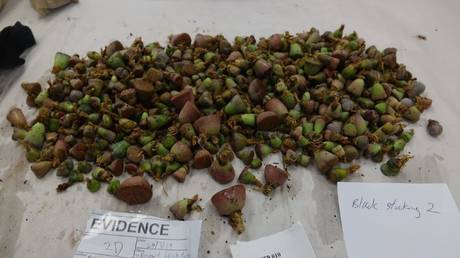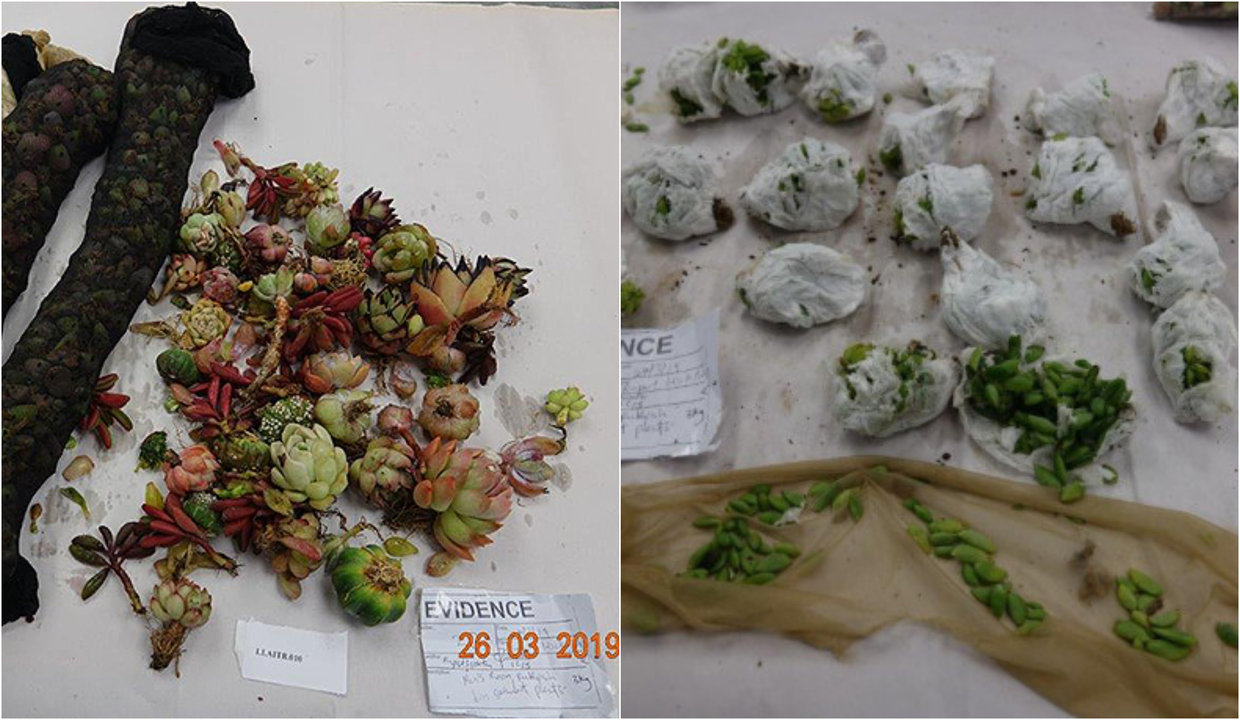
A New Zealand woman has been sentenced to 12 months of intensive supervision and community work after getting caught smuggling a $7,000 haul of assorted succulents and cacti tucked into her stockings.
The 38-year-old woman, identified as Wenqing (Wendy) Li, received her sentence on Wednesday after pleading guilty to charges relating to two separate smuggling incidents.
Back in March 2019, Li got caught at Auckland International Airport with a stash of 947 succulents and cacti in stockings that were strapped to her body. The woman, who was returning from China, failed to pass through airport security, who were alerted to the contraband by a sniffer dog.
“After being noticed by a detector dog, Ms. Li tried, unsuccessfully, to hide her offending by disposing of items in the airport toilets,” New Zealand’s Ministry of Primary Industries (MPI) said in a statement.
“MPI officers prevented the evidence being destroyed and conducted a full search of the toilet area where a large amount of plant material was found, including three stockings filled with succulents and cacti in one of the rubbish bins inside the men’s toilet.”

© Ministry for Primary Industries (New Zealand Government)
The haul of cacti and succulents included at least eight endangered and threatened species. The estimated worth of the plants was NZ$10,000 (around $7,000). It was not immediately clear whether Li planned to sell the plants or keep them herself.
In a separate incident in July 2019, the plant-loving woman got caught with “142 unauthorized seeds hidden in commercially packaged iPad covers in her luggage.” Her luggage also contained more than 200 plant pots wrapped into “moldy wet paper.” The pots also contained at least one snail and “pieces of tree fern stem.”
New Zealand has extremely tight security laws by which it’s forbidden to bring in most organic items, plants and foodstuffs. The restrictions are designed to prevent introducing hostile specimens as well as foreign diseases and pests into the unique ecosystem of the island nation.
“This sentencing serves as a good reminder that anyone who smuggles plants or other endangered species into New Zealand can expect to be prosecuted,” said Simon Anderson, a senior MPI official.
“It’s important to remember that bringing unauthorized plants into the country by any method, whether smuggling through the border in person or receiving products by mail, puts New Zealand’s biosecurity at risk.”
Think your friends would be interested? Share this story!




